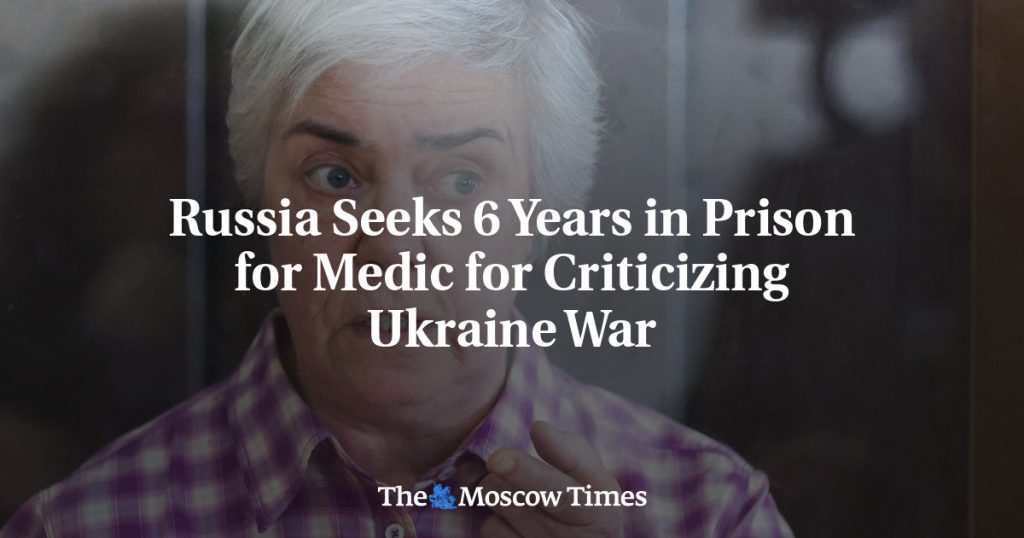Russian prosecutors have requested a six-year prison sentence for a Moscow pediatrician named Nadezhda Buyanova, who is accused of criticizing the invasion of Ukraine during a private appointment. Despite Buyanova insisting on her innocence, she was arrested in February following accusations made by the ex-wife of a soldier killed in Ukraine. Buyanova, who was born in Ukraine’s Lviv but has been living in Russia for decades, cried in court and maintained her innocence as the prosecutor requested the court to find her guilty of spreading “fake” information about the Russian army and sentenced her to six years in a penal colony.
The case against Buyanova sheds light on the level of repression in Russia amid the ongoing conflict in Ukraine. The Russian government has used laws against spreading “fake” information to silence dissent, particularly as its troops continue to fight in Ukraine. Buyanova was brought into court in handcuffs and placed in a defendant’s cage, where she spoke about her innocence and the significance of knowing the truth about herself despite the difficult circumstances. She emphasized the challenges she has faced throughout her life, coming from a simple family.
The accusation against Buyanova was made by Anastasia Akinshina, the ex-wife of a soldier who was killed in Ukraine, who claims that Buyanova criticized the invasion during a doctor’s appointment for her son. Akinshina alleged that Buyanova called her ex-husband a “legal target for Ukraine” and blamed Russia for the conflict in Ukraine. However, Buyanova’s defense team has stated that there is no evidence to support these claims. In court, prosecutors brought out Akinshina’s seven-year-old son, who allegedly overheard the conversation, to testify against Buyanova. The child claimed that Buyanova called Russia an aggressor country and accused it of killing innocent people in Ukraine.
Despite the support of a dozen people, mostly medics, who came to the trial in solidarity with Buyanova, the case against her remains challenging. The accusations against her highlight the extent of repression and silencing of dissent in Russia, particularly around sensitive topics such as the conflict in Ukraine. As Buyanova continues to maintain her innocence and stand by her version of events, the outcome of the trial and the potential impact on her life and career remain uncertain. The ongoing conflict in Ukraine has created a climate of fear and censorship in Russia, making it difficult for individuals to express their opinions freely without fear of retribution from the authorities.














